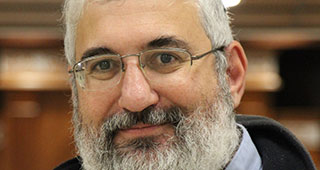Beit Midrash
- Sections
- Chemdat Yamim
- Bemare Habazak - Rabbis Questions
Answer: As a practical question, this hinges on many issues that are beyond our strategic-political expertise. Although one’s first response is that one obviously may not do anything that would help murderers such as ISIS, that may be simplistic. Consider that one who follows that approach to its end would have to get rid of his car because ISIS is financed significantly by oil sales, and usage affects the market. Since we have no idea to what extent such ISIS Jewish artifact sales are an issue, this response is a theoretical analysis.
First we ask: is there a mitzva to save these artifacts? There are two possible mitzva reasons to "redeem" them. One is to save holy articles from disgrace. Another is to save Torah information for the Jewish people. Often, people buy such things for a personal reason – the desire to own coveted Judaica – it is hard to consider that a mitzva.
Saving holy scrolls from disgrace is recognized as something for which it is worthwhile to pay a halachic price. It is permitted to violate certain Rabbinic laws of Shabbat in order to save holy writings with enough sanctity to require geniza, whether halachic sifrei Torah, remainders thereof, or even any Torah writings (Shulchan Aruch, Orach Chayim 334:12, Mishna Berura 334:39 and Rama, OC 334:17). On the other hand, we do not find sweeping leniencies or an obligation to seek out such items to save.
The element of saving vital information comes up in the following context. The mishna (Gittin 45a) says that despite the great mitzva ofpidyon shvuyim (paying ransom to free captives), the Rabbis prohibited paying more than the captive’s "market value." The apparently accepted explanation is that it encourages the taking of captives. Tosafot (ad loc.) asks how it was permitted for R. Yehoshua ben Chananya to pay an exorbitant price to free a youngster who showed great Torah promise (Gittiin 58a). One of Tosafot’s answers, which the Shulchan Aruch (Yoreh Deah 252:4) accepts, is that it is permitted to pay a high price for someone with the potential to make great Torah contributions. The same logic should also apply to redeeming a valuable Torah work.

Bemare Habazak - Rabbis Questions (628)
Rabbi Daniel Mann
187 - Requirement for the Seller to Fix the Situation
188 - Protecting Sefarim But Aiding Terrorists
189 - Tisha B’av Pushed Off till Sunday
Load More
Often, the price people are willing to pay for valuable Judaica has little to do with its practical importance for Torah information, but due to its historical, sentimental, or even artistic value. In the case of a terrorist organization, it seems inexcusable to pay even the "going rate" for them if it means helping an "organization" like ISIS, which perpetrates atrocities.
Let us put things in perspective. Sometimes the Rabbis forbade commerce which may be used to further sinful activity (see Avoda Zara 2a). On the other hand, the Rabbis were careful not to forbid more than society is able to handle, and there is a limit to how many things we can boycott (remember the comment about cars). In a case as stark as the one you raised, the spirit of the law suffices to preclude buying even important holy objects in a manner where there is a rational fear that it would put people in mortal danger. Only in exceptional cases might one contemplate that the cost-benefit comparison makes redemption moral.

Ask the Rabbi: Purim Meshulash
Rabbi Daniel Mann | Adar 5785

Ask the Rabbi: Beracha Acharona on Cake
Rabbi Daniel Mann | Tevet 5786

Ask the Rabbi: Must One Give his Apartment for Free?
Rabbi Daniel Mann | Elul 5785

Ask the Rabbi: Drawer with Aluminum Foil Roll
Rabbi Daniel Mann | Cheshvan 5786

Rabbi Daniel Mann

Making Sure your Check Is Cashed
Kislev 5783

Encouraging a Child to Criticize His Parent
5774

Giving an Envelope on Shabbat to Use for Donations
5773
























